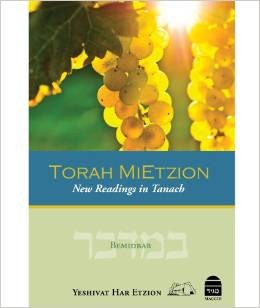In transition: When ‘desert’ means ‘numbers’
This Shabbat will witness the beginning of the reading of the fourth book of the Torah, Bamidbar, sometimes translated as the Book of Numbers but never as the Book of the Desert (which is what bamidbar means).
What follows are mini reviews of several essays, most recently published, that merit your attention.
In the introduction to her essay, “From Generation to Generation,” Dr. Yael Ziegler of Herzog College describes the structure of Bamidbar: “The Book of Numbers is a book of transition. It tells of one generation’s failure to enter the land of Israel, and of the next generation’s success. The critical question is why the first generation fails. The standard answer is that the pessimistic report brought back by the spies indicated a lack of faith in G-d. Nevertheless, the real question remains: What triggered this type of report? This generation witnessed the great events of the Exodus from Egypt: the ten plagues and the splitting of the sea. Why did the spies exhibit such meager faith?”
Dr. Ziegler goes on to detail her reasoning for questing the behavior of our ancestors that dwells deep in motivations that have baffled commentators from time immemorial. A close reading of her analysis is warranted. Her analysis is the lead essay of an anthology of essays entitled “Torah MiTzion: New Readings in Tanach — Bamidbar” [Maggid Books, 2014], the last in a series of essays on the Torah that utilizes applies advanced literary analysis into the depth of midrash and other thematic ideas that serve to reinterpret philosophical principles of our faith to the Torah text itself.
In his introductory essay on this week’s parshah, Rabbi Alex Israel points to the following in a rather technical literary detail method that makes his take so different from others:

 43.0°,
Partly Cloudy
43.0°,
Partly Cloudy 









